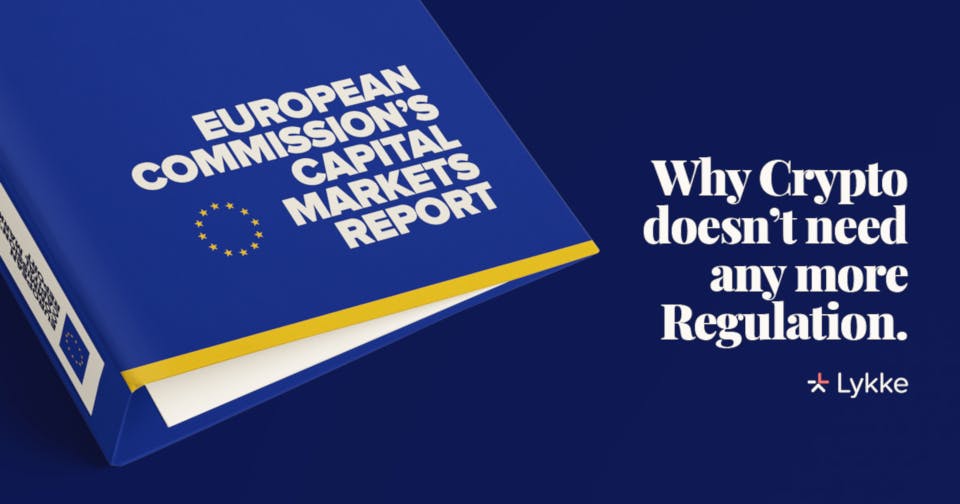Why Crypto Doesn’t Need Any More Regulation

- Date
- 09/10/2020
- Written by
- Lykke
- Share
- Leave your opinion (0 reviews)
This month the European Commission’s High Level Forum released the report, A New Vision for Europe’s Capital Markets, which calls for new regulatory frameworks to create robust capital markets in the EU. In conjunction with the report, the Commission is working with the European Parliament’s Economic and Monetary Affairs Committee to finalize by September 2020 a “FinTech Action Plan” that advocates for a legislative overhaul of cryptocurrency regulations. The Commission claims its efforts will facilitate broader use of cryptocurrencies and digital finance technologies.
But here’s the simple truth – crypto doesn’t need any more regulation. We can bypass tedious legislative routes in favor of utilizing the existing mechanisms at our disposal. Digital assets can be afforded essentially the same treatment as fiat currencies. If regulators truly want to bolster competitive business environments, foster retail investment in capital markets and eliminate cross-border hurdles, they should consider the following:
Money is money – all that’s changed is technology.
Digital finance is simply another step in the barter society that we all live in. For example, does the use of coupons or vouchers to buy goods require any massive policy shifts? Of course not. Likewise, the regulatory obstacles facing the crypto economy should not be any more complex than this. Similarly, the advent of the printing press and bank notes didn’t herald the collapse of monetary systems, as some feared at the time – technology merely changed money’s representation and accessibility.
Speed is of the essence.
Technological changes come rapidly, and those who don’t stay at the forefront of cutting-edge innovation will get left behind. In its report, the Commission itself calls for regulators to be flexible and acknowledge that digital assets are rapidly changing, but legislative processes weren’t made for speed and flexibility. They can be cumbersome and laborious. If the EU wants to capitalize on cryptocurrencies’ momentum, it should leave current laws alone, support the integration of blockchain technologies and allow processes to be as seamless as possible – this requires less regulation, not more.
COVID-19 has shown that governments don’t need more regulation to act.
Much of the current dialogue around cryptocurrencies centers on the need for central bank digital currencies (CBDCs) and whether the development of CBDCs would require extensive regulatory amendments. However, in responding to the pandemic, central banks around the world, including the European Central Bank and the US Federal Reserve, have been experimenting with new fiscal policies that would have been unimaginable merely six months ago – and they’re doing it without massive regulation because they need to act quickly.
Summary
We don’t need more laws, and our hands aren’t tied. All that it takes to effect change is a few enlightened people within the public and private sectors who embrace visionary thinking. While the European Commission’s report and public consultation indicate a positive and necessary willingness to engage with the crypto community, regulators should take a step back to allow industry, not government, to drive technological change.